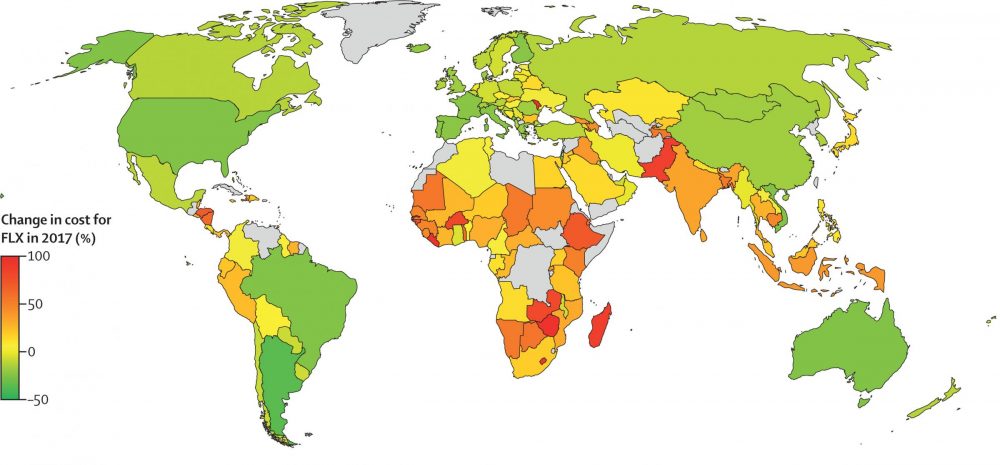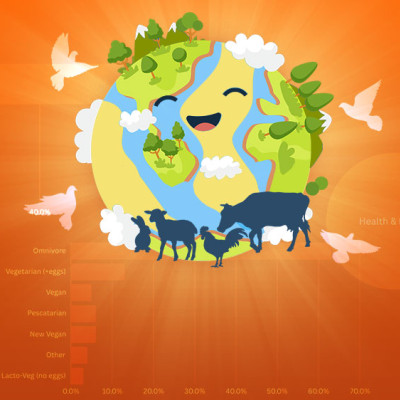Oxford University researchers finds vegan diets are cheaper
Published 11 November 2021
Being vegan could slash your food bill by up to one third, new research from the University of Oxford has revealed.

The study compared the cost of seven sustainable diets to the current typical diet in 150 countries, using food prices from the World Bank’s International Comparison Program.
The research focused on whole foods and did not include highly-processed meat replacements or eating at restaurants or takeaways.
It found in high-income countries vegan diets were the most affordable and reduced food costs by up to one third (21 to 34 per cent).
Vegetarian diets were a close second with similar reductions (27 to 31 per cent), flexitarian diets with low amounts of meat and dairy reduced costs by 14 per cent.
However, a pescatarian diet, where a person does not eat meat but does eat fish, increased costs by up to 2 per cent.
Dr Marco Springmann, researcher on the Oxford Martin Programme on the Future of Food said the research will “surprise” people.
He said: “When scientists like me advocate for healthy and environmentally-friendly eating it’s often said that we’re sitting in our ivory towers promoting something that is financially out of reach for most people.
“This study shows that it’s quite the opposite. These diets could be better for your bank balance as well as your health and the health of the planet.”

The study also found that in lower income countries, such as on the Indian subcontinent and in sub-Saharan Africa, eating a healthy and sustainable diet would be up to a quarter cheaper than a typical Western diet but at least a third more expensive than current diets.
Dr Springmann said: “Affording to eat a healthy and sustainable diet is possible everywhere, but requires political will.
“Current low-income diets tend to contain large amounts of starchy foods and not enough of the foods we know are healthy. And the western-style diets, often seen as aspirational, are not only unhealthy, but also vastly unsustainable and unaffordable in low-income countries.
“Any of the healthy and sustainable dietary patterns we looked at are a better option for health, the environment, and financially, but development support and progressive food policies are needed to make them both affordable and desirable everywhere.”
To analyse what options could improve affordability and reduce diet costs, the study looked at several policy options.
The study found that making healthy and sustainable diets affordable everywhere is possible within the next ten years when economic development, especially in lower income countries, is paired with reductions in food waste and a climate and health-friendly pricing of foods.
Original Article > by Sophie Perry, Oxford Mail
Recent News
-

Dogs Thrive on Vegan Diets, Demonstrates the Most Comprehensive Study So Far
The longest, most comprehensive peer-reviewed study so far has demonstrated that dogs fed nutritionally-sound vegan diets maintain health outcomes as well as dogs fed meat.
-

Vegan YouTube Channels – Our Top Picks
Vegan Easy’s YouTube channel recommendations to help you on your vegan journey.
-

Pamela Anderson’s New Vegan Cookbook: A Culinary Journey of Love and Compassion
Pamela Anderson, the iconic Hollywood actress and passionate animal rights advocate, is set to captivate the culinary world with her upcoming vegan cookbook titled "I Love You: Recipes from the Heart."
-

January 2024 Vegan Easy Challenge Recap
People from around the world began their 2024 with a peaceful start by taking the 30-day Vegan Easy Challenge.
-

Discover the Culinary Delights of Byron Bay’s Newest Plant-Based Cooking School
Learn the sublime art of plant-based cuisine at Katie White's new cooking school in Byron Bay
-

Beyond Romance: Encouraging Vegan Themes and Animal Protection in the Growing World of K-Dramas
The global popularity of K-dramas and growing interest in veganism present a unique opportunity to foster positive change
Leave a Comment